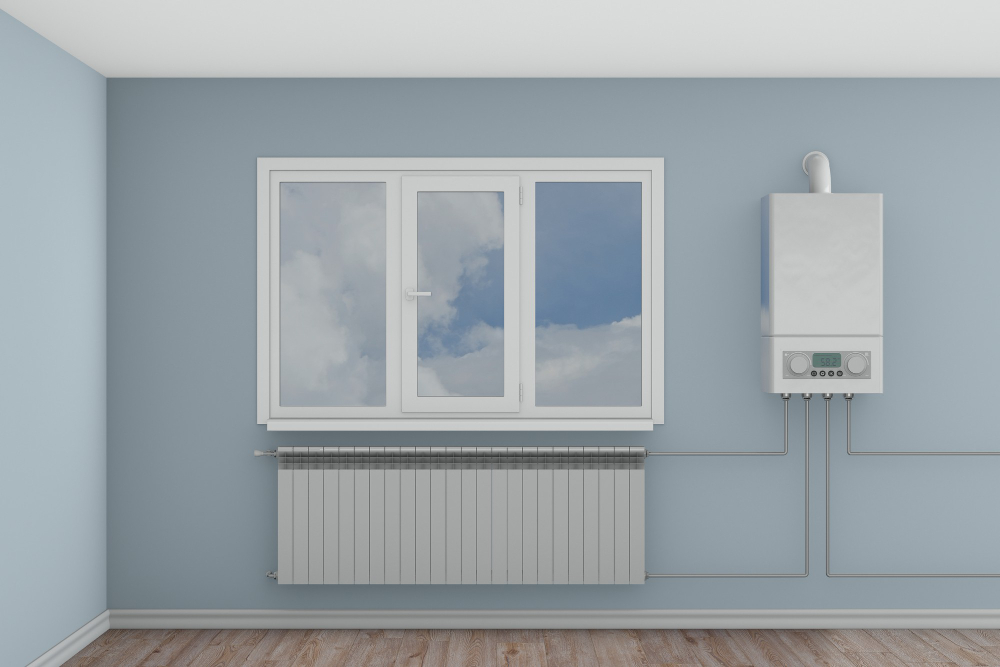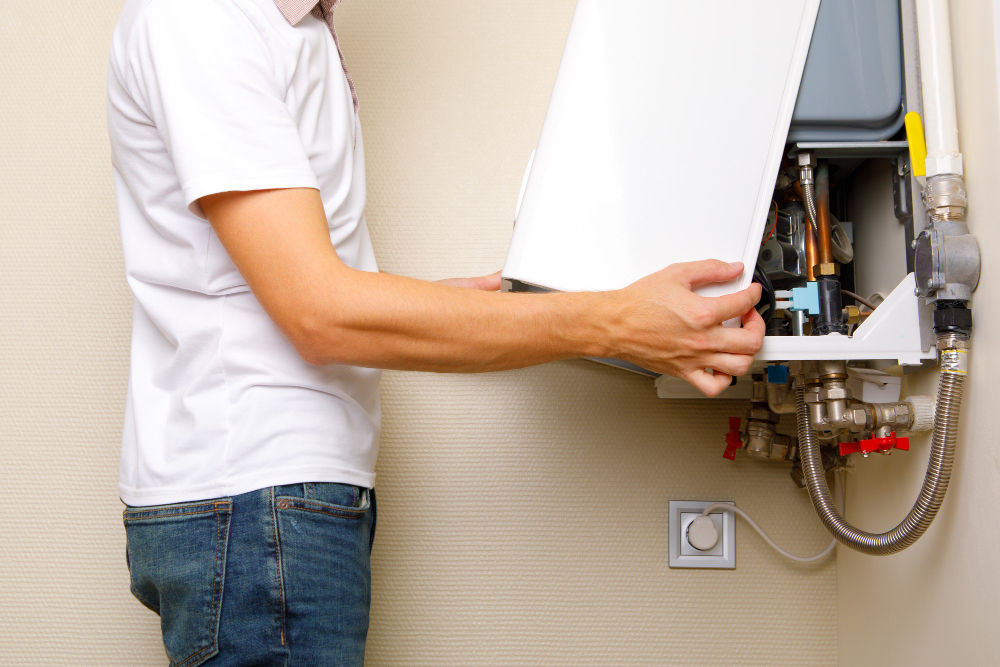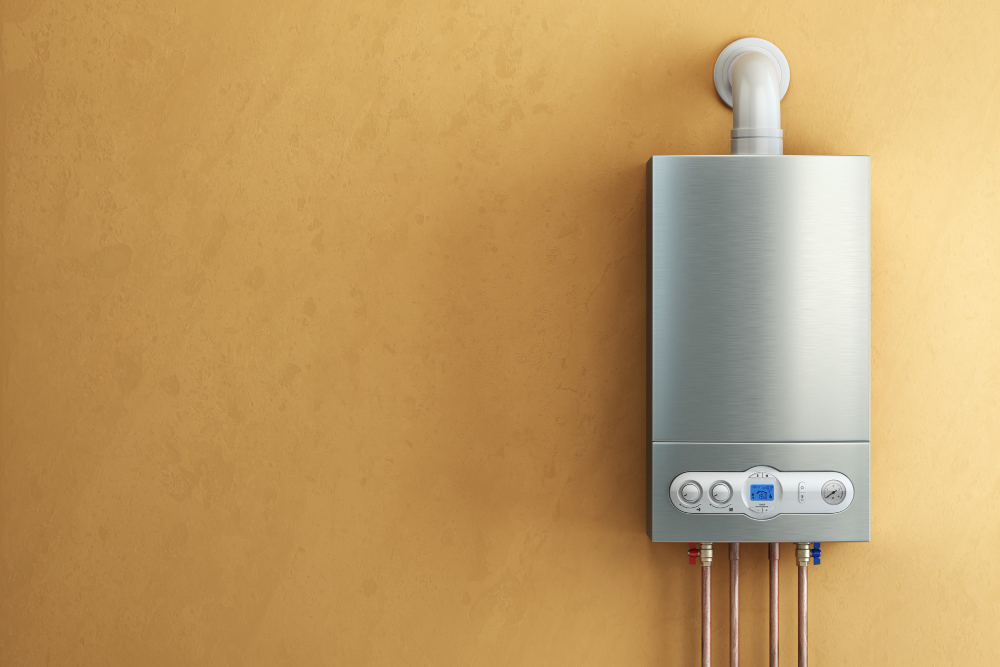This post was updated on: October 29th, 2021
Buying a water heater may be a more involved process than you thought. Let's examine some of the basics before we cover this article's main question of the gas vs electric water heater.
When most people think of water heaters, storage-tank water heaters are probably what they imagine. Conventional storage-tank water heaters, whether they're an electric water heater or a gas water heater are a popular choice for many homes. They're dependable, relatively cheap, and easy to install.
But tankless water heaters have advantages that are hard to deny. They're more energy-efficient, and if sized properly you'll never run out of hot water. Tankless water heaters come in two main types: gas hot water heaters or electric hot water heaters. With both gas and electric models available, it can be confusing to know which water heater to purchase.
We'll discuss some of the different factors you need to consider and weigh the pros and cons of gas vs electric.
By this point, you’ve decided on the highly efficient tankless option. But now what? There are a number of important factors to consider when choosing which water heater will better suit your needs.
In this article, we'll break down all of the pros and cons of the gas vs electric water heater debate for you.
Contents:

First and foremost, you need to decide on how much you’re willing to spend. Like anything else in life, prices vary with water heaters, and the more features, the higher the price.
Electric tankless water heaters are substantially less expensive than gas. While a quality electric unit can be purchased for around $500, a gas unit will run you more at about $1,000 or more.
If you do prefer a gas tankless water heater, there are options that can lower the price overall. For instance, a non-condensing gas heater is much more affordable than a condensing unit but is also somewhat more expensive to initially install.
What's the difference between condensing and non-condensing units. The key difference is that condensing units eliminate the need for venting. Depending on your installation, that could be a price factor to consider as well.
The initial price of a tankless water heater is an important factor to consider, but unfortunately, costs don’t stop there. It’s also important to be mindful of the operating costs and budget accordingly.
There are two main points to remember when considering operating costs: the price of fuel and the efficiency of the unit.
Generally speaking, the price of electricity is higher than the price of gas in most locations, making an electric heater more expensive to operate. It’s also safe to say that the price of electricity is more stable than the price of gas. While gas prices vary from location to location and fluctuate quite often, electricity stays within a smaller price point range.
Of course, it goes without saying that if you don't have gas at your home, you'll need to go with an electric water heater.
Although electricity is currently more expensive than gas, its price is generally more predictable and stable. Electric water heaters are also considered more efficient because they can produce more hot water with less fuel. In fact, electric water heaters are the most energy-efficient water heaters available.
Installing a tankless water heater correctly is important to ensure high performance and safety. Because a tankless water heater, gas or electric, is a costly investment we highly recommend seeking professional help to install it correctly and securely.
Natural gas units can be far more intricate and complex to install, not to mention more expensive. This is because most require a venting system to provide the proper airflow is required for a gas water heater, and this can cause a complicated installation process.

Most home’s existing duct systems for venting and natural gas lines are rarely compatible with gas tankless water heaters. This sometimes requires home modifications that can become quite the added cost.
Tankless electric water heaters are much smaller units than most gas water heaters, allowing for an easier and less costly installation. They also don’t require a ventilation system since there is no gas combustion and are far less complex overall.
When it comes to maintenance and upkeep, gas tankless water heaters require more maintenance than electric. Gas units require an annual inspection to ensure that the unit is running safely and efficiently while electric units do not. The only maintenance electric water heaters require is for their screen filters to be cleaned out annually.
Tankless water heaters measure their water use by how many gallons per minute (GPM) a system can produce. Generally speaking, the amount of GPM an average family would need is somewhere between 5 and 8 GPM, but this is all variant depending on your specific needs.

Gas tankless water heaters are capable of producing higher GPM than electric heaters, making gas units a better choice for those with large families.
Electric water heaters are still capable of producing a desirable amount of hot GPM, but less than gas. You can overcome this by using multiple electric water heaters in your home, or placing an electric water heater at a high-demand location, like in your laundry room.
Both units’ efficiency in delivering hot water is dependent on the incoming water temperature.
Both gas and electric tankless water heaters should last for a full 20-year lifespan if maintained properly. An electric water heater will often last longer than 20 years because the design and upkeep are so much simpler.
Gas units may have a more difficult time living out or exceeding their lifespan because they are much more intricate systems, requiring complicated maintenance. If not maintained properly, gas tankless water heaters will not run efficiently or last for their entire duration.
If you've got to bet on one of the two, an electric tankless water heater is the winner.
It’s safe to say that gas units will come with a 10-year warranty for their heat exchanger and 5- or 10-year warranties for other costly parts. Oftentimes, they may also come with a 1-year warranty that covers labor costs.
Electric tankless water heaters commonly come with warranties, but the length varies. It’s safe to assume that a high-quality electric unit will come with a 5-year warranty for parts and a 1-year warranty for labor.

Like many would assume, an electric tankless water heater runs more efficiently than a gas one. Gas units emit greenhouse gases and consumers should be mindful of that when choosing a unit.
It’s important to know that if you do choose a gas heater, gas tankless water heaters are more energy-efficient than traditional storage gas water heaters - sometimes upwards of 80%.
Let's consider what we've discussed and list out the pros of gas heaters:
Now for the flip side. Here are the cons of gas water heaters:
Now it's time for electric water heaters to take the test. First the pros of electric heaters:
Now let's list out the cons of an electric hot water heater:
A tankless water heater is a costly and important investment for your home, so it’s crucial to fully understand your options. There are a number of factors to address between choosing an electric or a gas tankless water heater such as installation costs, maintenance costs, environmental impact, lifespan, and how much hot water your home requires.
We hope that your time here has helped you make a considered decision on gas vs electric tankless water heaters.
We hope this article can help you decide which water heater is best for you. At Team Enoch we have many collective years of experience in recommending and installing water heaters of all types. If you still need help deciding please do not hesitate to contact our qualified electrical and plumbing professionals.
